Color Pattern Matching SensorMVS-PM-R Series
Cost Efficient Color Pattern Matching Vision Sensor
- Up to 16 inspection windows available
- Easy setup by touchscreen and ten keys
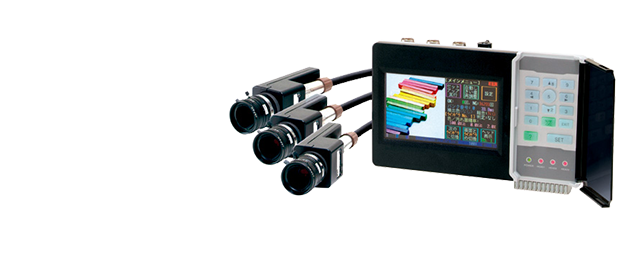
For stable inspection and better process yield
7 functions are available
Continuous capture
When the camera checks the image it will automatically check up to 5(EM-R) or 6 images(PM-R) or 8 images(OCR2), looking for a good reading. This insures stable operation if the trigger is not stable or the position of the object changes slightly.
If the result is found to be OK the inspection will stop prior to reaching the maximum number of inspections.

-
Variable shutter speed
When the camera is checking image using the Continuous Capture feature the shutter speed will automatically be adjusted up to +36% ~ -24%(PM-R/EM-R) or +/-12% (OCR2). This compensates for changes in the lighting.
-
Search function
The images is searched not only in the X and Y direction but it also can be rotated up to +/- 180 degrees (PM-R/OCR2) or +/- 45 degrees(EM-R). This is useful when the position or orientation of the object changes.
Scaling up/down
When the camera is checking the image using the Continuous Capture feature the image will automatically be scaled Up/Down by up to +/-6%. This compensates for changes in the distance between the camera and object.
-
Trouble Shoot
button leads you to the Trouble Shooting menu. From this menu, you are able to view what corrections need to be done.
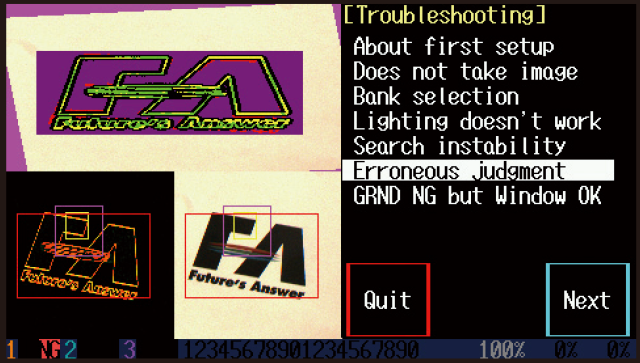
-
Help function
button on the ten-key panel shows what the parameter means and what adjustments can be done.
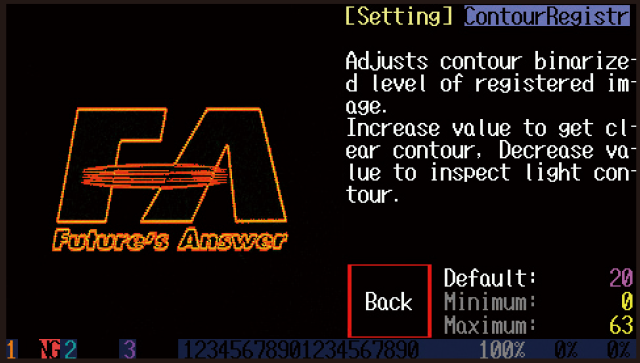
Dark Compensation (OCR2 : Illuminance Correction)
For reliable inspection of color, the hue of each pixel is calculated. This function insures that captured images are stable even with variations in lighting or when the distance to the target changes.
When the light is from the top
-
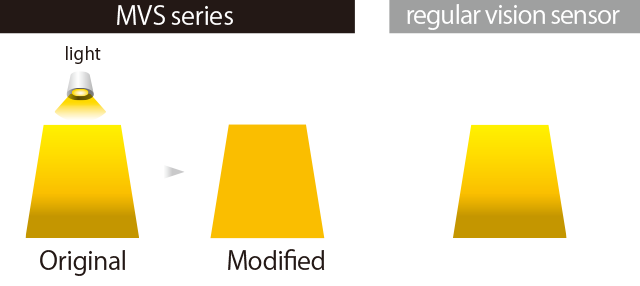
The MVS calculates the hue of each pixel so it can get a homogenous color for each pixel. Regular vision sensors simply adjust the brightness so the upper part is brighter than the lower part.
When a bright ambient light is present
-
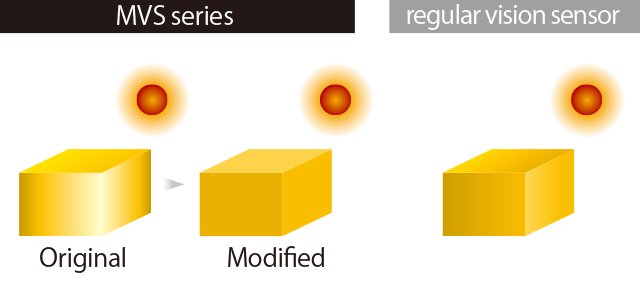
The MVS can get a homogenous color for each pixel even if the object has an area which is brighter due to external ambient light.
When the distance varies
-
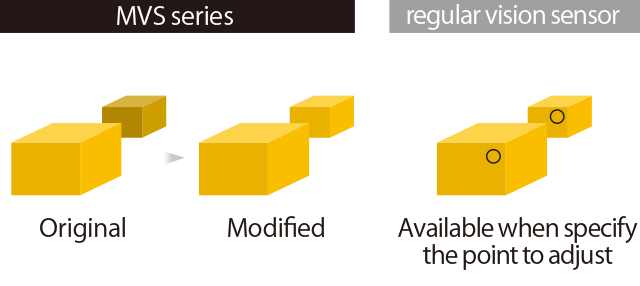
The Dark Compensation function is effective when the object distance varies and its brightness changes
When the object is glossy
-
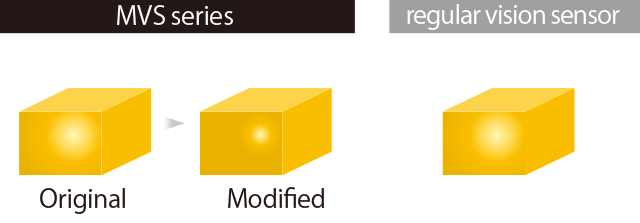
The Dark Compensation function helps to reduce bright spots on glossy surfaces.



